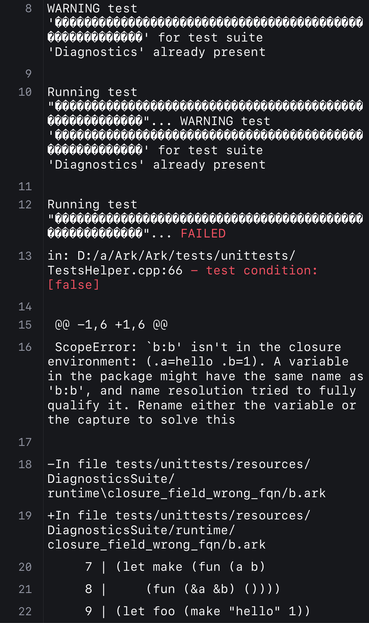I might have found yet another (better? At least on paper) memory layout for storing #ArkScript scopes and locals
Currently I create a vector<pair<id, value>> for each scope. Quite costly in terms of copies and all
What if I had a
array<pair<id, value>, N>
And my scopes were just views:
view(start, length, min id, max id)
Since only the last scope can grow… it could work. Min and max id are there for a basic bloom filter. I just have to solve the problem for closures that have their own scope that must be kept alive, but by pushing references (value holding a ptr to value) this could be solved easily
Also because of closures, scopes are shared ptr to Scope (the class holding the vec of pair) currently. Quite costly to construct…
I will go back to my old scopes/locals management code and I think I will write an article about how it evolved, and the various performance boosts it yielded
#pldev #proglang


![Screenshot of ArkScript code, testing http GET requests:
(test:suite http {
(let c (http:client "localhost" 8000))
(let headers (http:headers
"TEST_HEADER" "value"
"USERNAME" "foo"
"PASSWORD" "bar"))
# headers are sorted alphabetically in the API
(let headers_as_list [["PASSWORD" "bar"] ["TEST_HEADER" "value"] ["USERNAME" "foo"]])
(test:case "http:get" {
(compare (http:get c "/")
""
"GET"
"/"
""
"text/plain"
nil
[])
(compare (http:get c "/hello/world?question=y&count=5&flag")
""
"GET"
"/hello/world"
"question=y&count=5&flag"](https://files.mastodon.social/cache/media_attachments/files/114/375/529/229/290/287/small/eb38ed0d4b11d8ca.png)